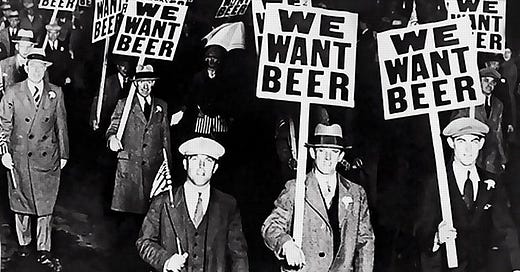The hidden virtues of the artist
Austin Kleon discovers the Golden Mean and we see what virtue could really mean for the creative type.
When I was hanging out with Ryan Holiday last Monday, I asked him about the Stoic virtues he’s currently writing about. I admitted that in the abstract, I didn’t find virtues all that helpful to me in my work! It often feels like vices — like envy or anger — are more motivating and bring about better ideas. (My books, even though they’re fairly positive, are often written out of a negative approach that’s fueled by my disgust with the world.)
Most every modern reader, by turns lazy, thoughtless, and ignorant, happily reads his own prejudices into a skin-deep reading of ancient ideas. Virtue and vice are among the most ill-understood.
This isn’t entirely the fault of the modern reader, however. Our conversations about the mind and the self are so twisted up and polluted with centuries of confusions, curlicues, cul de sacs, conceptual hack-work and other alliterative transgressions that you can hardly blame a non-specialist for failure to get the point.
Plato, Aristotle, and the Stoics did not mean by “virtue” what your 21st century habits of thought and speech may lead you to believe.
Take the virtue of moderation.
If you’re like me, the word “moderation” conjures up images of humorless Victorian gentlemen wearing suits in tropical heat, the withering scolds of the anti-alcohol temperance movement, and other puritanical souls who dedicate their lives to the destruction of fun wherever they find it.
There’s an element of truth in that image. Christianity has always had a fraught relationship with the sensual body and its appetites. Up here in the age of unchecked hedonism, any ideal of moderation can seem a stuffy, chafing source of pointless frustration.
Yet no less than St. Thomas Aquinas defines temperance as the virtue that “withdraws man from things which seduce the appetite from obeying reason”, a pithy phrasing with interesting consequences for the self-denial brigade.
The virtue of temperance means to keep us from the over-indulgence of the drunk and the sex maniac, as you’d expect. But he also takes aim at the sour-faced abstinence and sobriety of the party-pooper, which are no less a deviation from reason.
That’s the kernel of it all. The essence of virtue lies in moderation of the passions and appetites by reason. Temperance restrains us from over-indulgence in the goods of pleasure and desire, namely food, drink, and sex, which will lead us to bad ends if left unchecked. But we also fall into error in pointlessly denying these goods and pleasures to ourselves when reason calls for us to enjoy them.
This is the upside of Aristotle’s Golden Mean. It is far easier to fall into error than to walk the path of virtue. But this does not mean that anything enjoyable or pleasurable, even the pleasures of the body, are judged bad.
Plato had a similar and possibly richer story to tell in the Charmides. He writes of the virtue sophrosyne, which comes to us as “moderation” or “temperance”. Unlike the fun-hating connotations of those words, sophrosyne also resonates with integrity, self-mastery, and undivided wholeness. A virtuous person exemplifies sophrosyne when demonstrating rational harmony, both inside and out.
Sophrosyne isn’t about doing some things, or avoiding other things. It’s about responding to reason — which, above all else, means doing the right things, in the right way, for the right reason, at the right time.
We are many long miles away from the dour self-denial of one-sided “moderation”.
Now, if you can’t see the value of such characteristics for the artist or the creator, I’m not sure you’re paying much attention.
Every damn day I sit down to write, I have to fight against a thousand phantasms competing for my attention, and most of those only exist in my head.
The only way through is to set the intention: I will be here at time F to do xyz.
The virtue of temperance is a necessary condition to get anything done.
What I find most odd is how Austin frames virtue as opposing the requisite screwing-around time that creators spend in relaxation and diversion. That anyone considers this essential stage of the creative process as a deviation from self-mastery strikes me as almost too bizarre to believe.
But on second glance, it’s perfectly understandable. We live in a rat-race hell-hole where the majority identify mindless busy-ness with quality of work and moral worthiness. Eighty hour weeks and forget about what actually gets done.
That’s as stupid and small-minded as it gets, which makes it no surprise that the majority of managers and bureaucrats think that way.
Neither Aquinas nor Plato would understand such the apparent indulgence as bad in and of itself. It’s not the drink and sex and leisure that’s bad. It’s the inappropriate and inordinate pursuit of pleasures against all reason that gets you.
Based on their own words, an artist pursuing leisure or even negative emotions for the sake of craft is perfectly consistent with the virtue of moderation. If creation requires a certain amount of necessary slack-time for idea to gestate in the unconscious parts of the self, then that’s part of the deal.
The vice is neglecting this part of the process for the sake of a false ideal of “productivity”.
We can tell the same sort of story of the other virtues. Courage, justice, and practical wisdom all have more and less obvious contributions to creativity and artistic work.
I don’t see these traits as opposed to creativity. You know that old saying: you must first know the rules in order to break them.
What seems to go against virtue — as our broken culture understands the word — might be excellent in a non-obvious way.
-Matt



